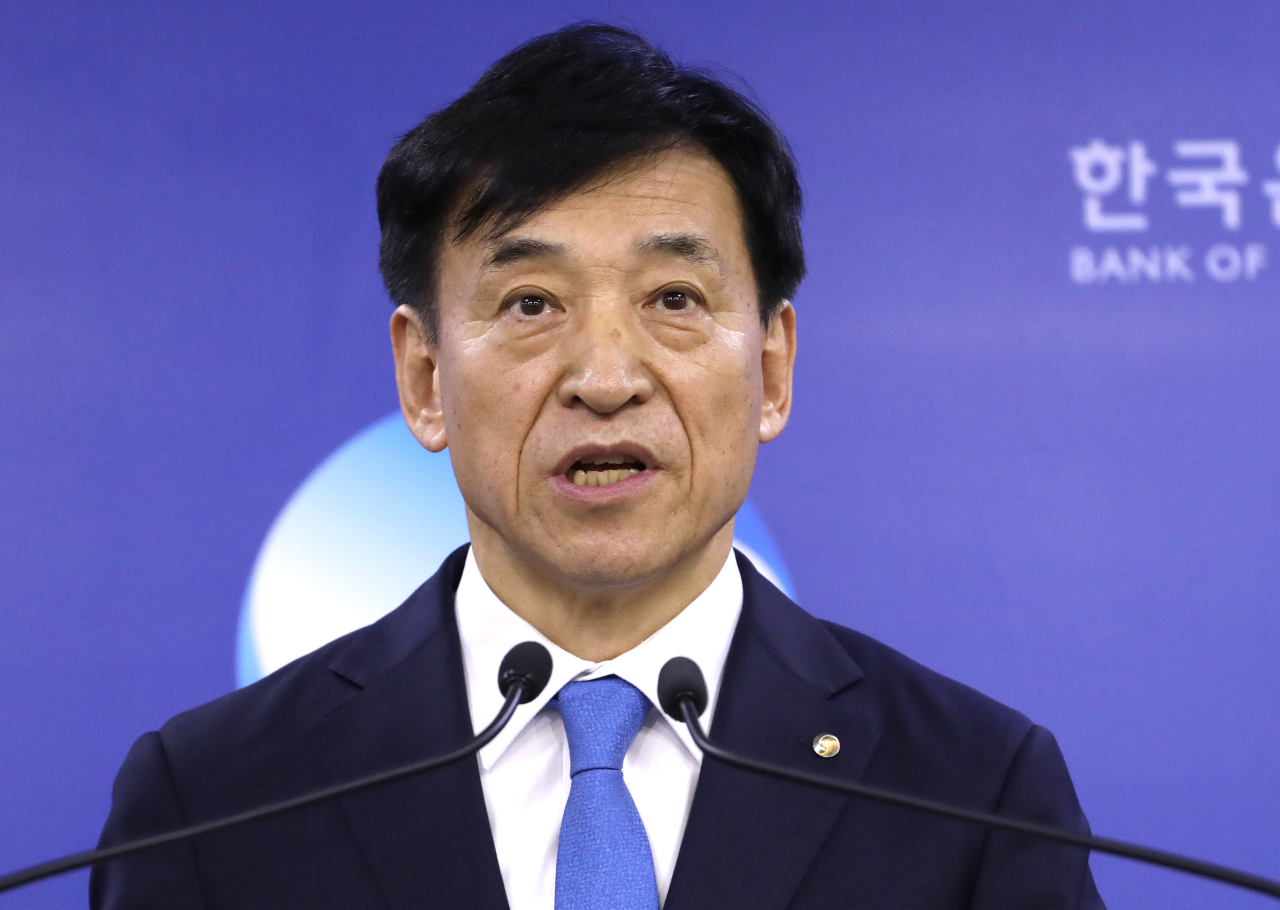July 19, 2019
Japan’s export curbs had impact on drastic lowering of outlook: BOK chief.
The Bank of Korea has slashed its forecast for this year’s economic growth to 2.2 percent, reflecting the negative impact of external uncertainties including Japan’s ongoing export curbs.
It also carried out an earlier-than-expected base interest rate cut to 1.5 percent, embracing the monetary easing signals in the United States and other developed economies.
 |
“Considering the changes in economic conditions since the last outlook (announcement) in April, we have set the economic growth rate for this year at 2.2 percent and the consumer price inflation at 0.7 percent,” said BOK Gov. Lee Ju-yeol at a press briefing after the bank’s rate-setting Monetary Policy Board meeting.
The suggested growth forecast was down 0.3 percentage point from the previous 2.5 percent. The updated forecast predicts the lowest yearly growth pace since 2009, when Korea saw an on-year growth of 0.8 percent in the aftermath of the global financial crisis.
The latest revision was seen as a shift from the central bank’s previously cautious stance, as it cut the growth forecast by a relatively substantial 0.3 percentage point, instead of the widely expected 0.1 percentage point.
With the latest move, the BOK’s growth forecast neared those of key global credit rating agencies, such as Moody’s and Fitch, which had respectively suggested growth of 2.1 percent and 2 percent for Asia’s fourth-largest economy this year.
Earlier this month, the Ministry of Economy and Finance lowered the government’s forecast to the 2.4-2.5 percent range, down from the previous 2.6-2.7 percent range.
Despite mounting concerns from the market, BOK chief Lee had for some time refrained from immediate adjustments, citing the country’s strong fundamentals — until bringing up the need for “necessary measures” last month.
The decisive factor was the recently elevated trade tension, triggered by the Japanese government’s move to restrict exports of key hi-tech materials to Korea, Lee admitted.
“(The impact of) Japan’s export restrictions were reflected to a certain extent in the economic assessments,” Lee said, admitting the correlation between the ongoing Seoul-Tokyo trade friction and the BOK’s change of stance.
“Given the trade volume between the two countries and the connectivity between their industries and companies, the export curbs have considerable effect upon our economy.”
Korea Customs Service data showed that exports totaled $13.56 billion as of July 10, down 2.6 percent from the same period last year. The daily average, considering the actual days of operation, was $1.6 billion, down 14 percent from a year prior.
The bank’s policy board also decided to cut the base interest rate by 25 basis points to 1.5 percent, making the first cut in more than three years.
Though a rate cute was expected this summer, Thursday’s decision was largely seen as preemptive, as it came earlier than the US Federal Reserve’s anticipated rate cut slated for later this month.
There had been speculations that Seoul’s monetary policymakers would stick to a wait-and-see approach for the time being and make a move after the Fed’s announcement, though some minority opinions had upheld an immediate rate cut.
According to a survey of 200 market experts here, conducted earlier this month by the Korea Financial Investment Association, 70 percent of the respondents predicted a rate freeze this month.


